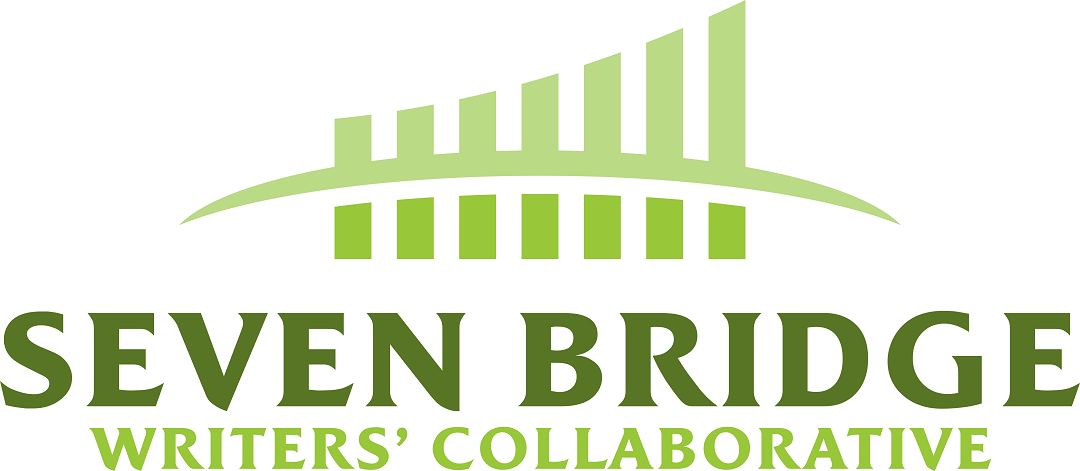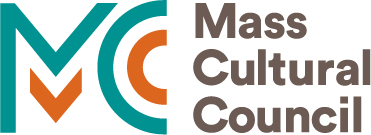

(Hollis Shore) In your memoir, Rust Belt Boy: Stories of an American Childhood, you write, “My family’s house, the Catholic church, our neighborhood and the houses of relatives, all made me feel at home and part of the community, but the library made me feel whole.” What was it about books that drew you in, and when did you first make the connection between your love of reading and becoming a working writer?
(Paul Hertneky) Strong belief, rituals, and a sense of belonging made home a secure foothold. From there, I could launch myself into the wonder, knowledge and stories within books, and explore a wider world. Simply put, I was a ravenous creature of curiosity, and the library was an all-you-can-eat buffet.
(HS) In Rust Belt Boy you describe wonderful scenes in which you and your cousins are playing under the table during Sunday dinners, surrounded by talkative adults. What role did storytelling play in your childhood and in what ways does the music of those voices find their way into your work?
(PH) Those beats and riffs and tones – they were the story. I didn’t understand the language. And the elders resisted telling stories. I had always seen my storytelling influences as slight until I read Salman Rushdie say that his early understanding of narrative came almost entirely through gossip. Same goes for me, the he-said-she-said dialogue, twisted point-of-view, and exaggerated characters were the framework for the emotionally charged coffee-klatch tales and the barroom bullshitting that very likely affect the way I write stories and essays.
(HS) Could you talk a little about point-of-view in memoir writing? How difficult was it to re/create the “other” self when you were exploring your past? And to what degree were you in dialogue with your earlier (and changing over time) self, and Paul Hertneky as narrator?
(PH) As much as I wanted to inhabit the boy, I’m too old for that kind of ventriloquism. The narrator, the adult, voices most of the judgment, analysis, and interpretation. For the boy, I trusted sensory experience – what I saw, touched, felt, smelled, and tasted – triggering some spoken revelry and wonder. His emotional responses to situations came back clearly at times, but I learned by drafting to be wary of my memory. Over the years, I had created a narrative I found suitable for telling, but once I wrote those memories, I would re-read them again and again, stripping off the varnish and wax until I got as close as I could to the base material. I doubt readers would have trusted my early glossies.
(HS) Who did you expect your audience to be for Rust Belt Boy, and how did that affect your craft?
(PS) I needed to satisfy, if not spell-bind, my literary readers who had never been near a steel town, and, at the same time, my fellow steelworkers and laborers, those who maybe read one book a year. A screenwriter and BU professor wrote, horrified, by a scene in which I am shoveling “curly steel shavings congealed in oil,” calling it “a Jewish mother’s unforgettable nightmare.” At the same time I heard from a crane operator who developed a sudden fascination with my literary hero, Michel de Montaigne. That’s what I was aiming for.
(HS) Assuming that every memoir asks a central question, how long did it take you to locate the your questions, and how much revision was required to answer it?
(PH) Oh, god. Five years from first completed draft to final draft. At least some revision, from granular to global, every day. Every time I thought I had the right design and nailed the big questions, a literary agent, an acquisitions editor, or my own demanding nature would send me back. When panning for gold, how many times do you dip the pan? The big questions confounded me. I had to trust that addressing the small questions would give way to the larger ones.
(HS) The stories in Rust Belt Boy work independently and as a whole. Could you talk a little about structure? Did you work chronologically? How did you find the focus for each chapter? And how did you approach transitions of time and place?
(PH) Moments, scenes, and small decisions fell like snowflakes as I tried to recognize their pattern on a window pane, roll the accumulation into a snowman. “The shape-making impulse,” as Seamus Heaney calls exerting our will upon elements.
I kept rearranging twice as many pieces as you see in the book. The beginning became the ending. Chronology changed as I worked to settle on the story I most wanted to tell. I shifted the narrative and the thematic emphasis. Many of the pieces grew and shrank as I experimented and made decisions, finally stitching them together with transitions. When you love revision, and I do, writing without a deadline is both a blessing and a curse.
(HS) You are a journalist, screenwriter, essayist, and memoirist. Who were your earliest writing teachers and mentors, and how did they influence the trajectory of your career?
(PH) As a college freshman, poet Ed Ochester introduced me to the magic of concision. Otherwise, all my early influences came through reading—great literature and contemporary writers in Esquire and The New Yorker. Montaigne, Emerson, Lamb, Hazlitt, Ginzburg, Beerbohm, Orwell, Roth, Didion, E.B. White, Thurber, Fitzgerald—they were my teachers, until I went to Bennington and my influences became personal instructors: Phillip Lopate and Bob Shacochis. Then George Packer, Sven Birkerts, and the atomic Lucy Grealy brought brilliance to bear on my work.
(HS) Your memoir is as much about a place and a people, as it is about a boy. How conscious were you of creating a sense of place as you wrote? And how did you manage the balance between the narrator’s story and larger, social, cultural and economic history of Ambridge, Pennsylvania and the greater rust belt?
At first, I only cared about depicting the place. Although I’d published or performed many personal essays, I saw the story of my childhood as unremarkable. I wanted to tell the story of Ambridge and Pittsburgh, and the Rust Belt towns like them. But their stories dragged me into a braided narrative of place and coming-of-age. Early drafts were a long way from memoir. They were mostly history and essays of place—until a faithful friend, reader and novelist Eugenia Kim, writers Howard Mansfield and Sy Montgomery convinced me that a loving family, days as a steelworker, and an early life in the trenches of immigrant culture offered rare gifts—to me and to readers. After that, I tried to identify the most piquant, revelatory facts and memories to illustrate my particular story in a truly particular place.
(HS) Could you describe your process? Where do you write, and what does your typical writing day look like? Do you juggle more than one project at a time? What are you working on now?
(PH) Every morning I go to my basement office and read, then write and work. It’s a wonderful space—a woodstove and a window facing a pond. I work in silence. When I’m on deadline, I skip meals and work until I’m out of time. When I’m not, I work on what pleases or pesters me. I always have essays and stories on back burners or front burners, in the oven, or marinating in the fridge. I take mostly useless notes. When I need a title, a lede, a tough angle or big idea, I walk in the woods with a voice recorder. I cultivate boredom—as it serves imagination for me.
Right now, I’m directing most of my energy toward a small book of travel essays and stories that take on human impulses, set in Greece, with the help of chosen gods.
(HS) You teach writing workshops, as well as writing full-time. What has teaching brought to your own creative work?
Immediate, unconsidered response—to my anecdotes, ideas, lessons, and questions. I had been writing for many years before giving teaching a try, because talking about writing kept me from writing, and the prospect of regularly reading bad writing scared me. But my early years of writing and publishing brought scant response. Yes, editors reacted, and readers wrote letters or sometimes tracked me down and either praised, interrogated, or threatened me—all months later. This was before the Internet. The first time I stood before a class, though, was a revelation—the students reacted! That said, it does cause me to crave immediacy, like a drug, so I impose limits on how much I will teach.
These days, I mostly have great students, and I am continually amazed, inspired, and reminded to practice what I preach.
(HS) What are you currently reading?
(PH) Salt, by Mark Kurlansky, and Giovanni’s Room, by James Baldwin.
(HS) What is the best writing advice you have ever received?
Most of the best I’ve read. But let’s narrow it down to three, shared with me directly:
“It’s not enough to go somewhere, Paul, something has to happen.” Edward Hoagland.
“What is the story? Answer in a single sentence with an active verb.” Sy Montgomery.
“When it’s not working inside, I go outside; and when it’s not working outside, I go inside.” George Packer.
From Rust Belt Boy, by Paul Hertneky.
During hot summer days at home, my friends and siblings grumbled until one of the mothers took them to the Ambridge pool, a massive cement playground of chest high water. Mayhem ruled, pitched with peer pressure and wet, snotty, kid-on-kid cruelty. I was afraid of the water and wore a bathing suit the way a Chihuahua wears a tutu, so I begged to be left at home or taken to the library. In winter, movies offered escape from the busy house and family, but the library allowed me to direct and star in my own movie—a mad chase, streaked with impressions, foreignness, and startling facts.
Left undisturbed among maps and magazines, I investigated far-flung nations, their mountains, shores, and people, their dwelling, their town, leaders, legends, and heroes. Connecting the word “culture” to the mold growing in Petrie dishes in science class, I slipped my reading about places under a sort of microscope and found the languages, arts innovations, and literature feeding off the surroundings, climate, and history. New smells seeped out of the pages of Conrad, new fears out of caves of Twain, and I swam in all of it without bearings or sense of time.
Noticing the sunbeams had slipped from the table and climbed the walls, I resurfaced with the feeling of having been swimming undersea or through a passageway between worlds—I remember it as if it were yesterday because it still happens. I feel woozy, shaking off a familiar disorientation, wiping my palms down the length of my torso as if some slime remained from a memory through which I passed. How long had I been away?

